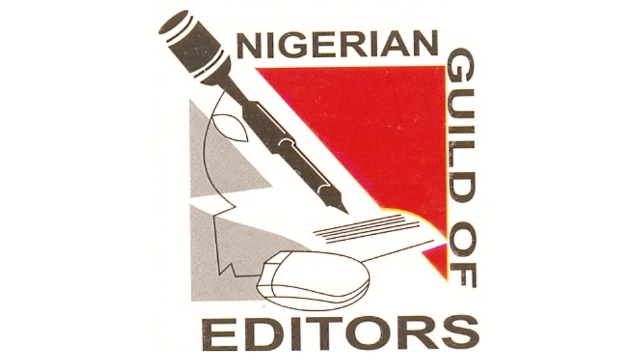Editorial
As Nigerian Editors Gather

When media Reporters gather, they do so, sometimes on invitation to take
reports, but when Editors, the persons who decide which report becomes news gather, the nation should listen. Experience has shown that if Nigeria had taken the focus of the All Nigeria Editors Conference (ANEC) every year serious, Nigeria would have been better for it.
ANEC which takes up critical issues of national importance every year since the 2004 has always called on the Presidency and Governors of the various States to speak at the executive sessions. This conference more than any other programme tends to give substance to the saying that the media is the 4th Estate of the realm.
Over the years, The Nigerian Guild of Editors has taken up issues that ought to have prepared Nigeria for some concerns that eventually troubled the country, but no heed appears to be taken. In the year 2010, they dealt with the topic; “Oil and Gas and the Amnesty programme…” today the re-emergence of hostilities in the Niger Delta should have been anticipated and averted.
In the year 2013, they took up the topic, “Nigeria beyond oil…” it is now, three years after that Nigeria appears to be waking up to the reality of a Nigeria without oil. In the year 2015, the guild focused on, “Nigeria: The Change we need…” Today it has become very clear that many Nigerians truly expected change, but not what they are seeing now.
Once again, the Nigeria Guild of Editors (NGE) will be holding their All Nigeria Editors Conference (ANEC), where they will be expected to underscore the demand for a diversified economy with the theme: “Economic diversification: Agriculture as option for a prosperous Nigeria.”
We want to join the government and good people of Rivers State to heartily welcome to Port Harcourt members of the Nigerian Guild of Editors and the cream of eminent Nigerians who would be joining them to discuss the compelling subject of agriculture and how it can be harnessed to serve the greatest economic interest of Nigeria.
In addition to holding one of their standing committee meetings in Rivers State before, the NGE was in Port Harcourt in the year 2010, when it raised the subject of oil and gas, and post Amnesty expectations. At both meetings they issued communiqués that made the Rivers people proud.
Perhaps, more than before, they will be pleasantly surprised with what they will see. Giving the negative propaganda against the State and the season of economic down-turn, nobody should expect too much, but not Rivers State. As usual, they will see the people, the greatest asset of the State in their colours and traditional welcome for visitors.
Contrary to the erroneous views of friendly enemies of the State, they will see a peaceful, virile and growing State. They will see selfless governance in action; they will see the Nyesom Ezenwo Wike (NEW) vision in action. They will see the environment that still cries for more resources needed to develop the State. As the conscience of the media and of the nation, they will be moved to put across a word for Rivers State.
Even as they will be busy with the theme of the conference, we hope that they will find time to see the unbelievable developmental strides of the present government in Rivers State. We expect that they will also draw attention to the state of the media, their primary constituency in Rivers State, even of the health of State owned media houses.
For the larger interest of the country, we expect that issues raised at ANEC will be taken a little more seriously. The Federal Government will need to assign to an agency the duty of collating the views of credible stakeholders in the polity with a view to raising them for consideration at the formal levels of authority.
This has become even more demanding because apart from recommendations of the guild, the intervention of many patriots, intellectuals, professionals and institutions appear to be ignored at the peril of the country. Currently, the call for the restructuring of the country has been on and nobody in government seems genuinely bothered by the true yearnings of the people. That is less democratic and certainly how not to grow a country.
Editorial
Beyond Accessing Bonny By Road

Editorial
Time For GL 17 In Rivers

Editorial
For A Prosperous 2026

-

 News2 days ago
News2 days agoNigeria Has Woken Up From Slumber Under Tinubu – Shettima
-

 News2 days ago
News2 days agoOji Clears Air On Appointment Of 15 Special Advisers By Fubara
-

 Featured2 days ago
Featured2 days agoRivers: Impeachment Moves Against Fubara, Deputy Hits Rock …As CJ Declines Setting Up Panel
-
News2 days ago
Nigeria To Begin Exporting Urea In 2028 -NMDPRA
-
City Crime2 days ago
Health Commissioner Extols Fubara’s Commitment To Community Healthcare Delivery
-
Niger Delta2 days ago
Tinubu, Leading Nigeria To Sustainable Future – Okowa … Lauds Oborevwori Over Uromi Junction Flyover Construction
-

 News2 days ago
News2 days agoEFCC Indicts Banks, Fintechs In N162bn Scams
-
News2 days ago
Situation Room Decries Senate’s Delay On Electoral Act, Demands Immediate Action

